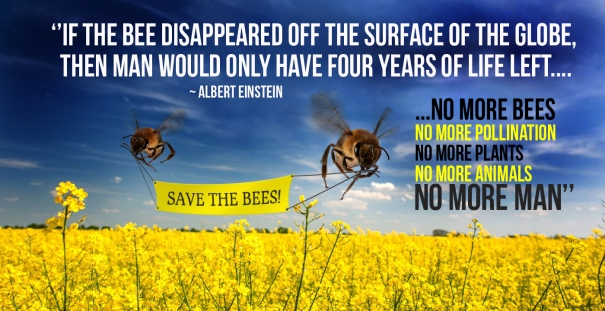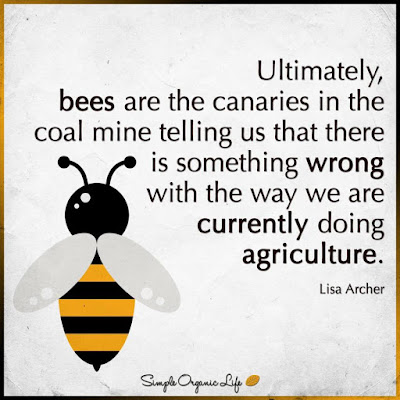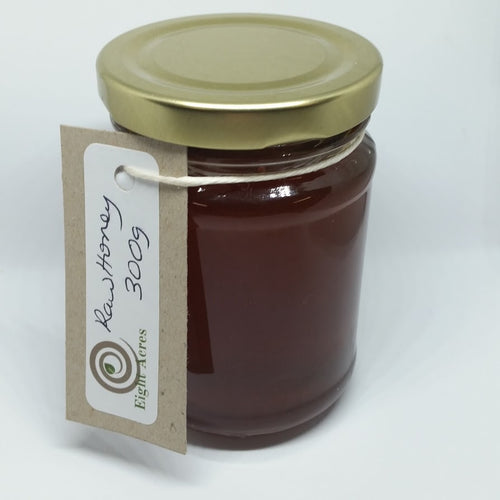Save the bees?
This might seem like a weird question, but are you sure we need to "save the bees"?
I keep seeing images like the one below and I feel that the message is a little simplistic and may be causing some confusion.
I keep seeing images like the one below and I feel that the message is a little simplistic and may be causing some confusion.
 |
| image source: https://themuseinthemirror.com/2015/06/07/bee-kind-and-save-the-bees/ |
First let me say that I absolutely support the concept that we need to save our pollinators, of which honeybees are one species. In Australia we have lots of native bees and wasps (and flies!) that also pollinate, and these insects should also be considered in this discussion. We do not rely on introduced honeybees alone to pollinate crops and wild plants.
The quote from Albert Einstein seems to have been mis-attributed, which makes sense as I don't think bees were really an area of expertise (he was smart, but he didn't know everything!). Whether there would be "no more plants" is also debatable. Many plants are not pollinated by honeybees or any insects, in particular grains and grass (which feeds beef). Our diets may be limited, but we would not starve completely.
Ironically the photo shows honeybees flying over a field of canola - a GM monoculture that doesn't really feed us at all, and is likely sprayed with chemicals that will actually harm the bees. The photo below shows signs next to (what I assume are) conventionally grown monoculture crops, again, these are likely doing more harm than good for bees and other pollinators. Also tomatoes are self-pollinating...
 |
| image source: https://themuseinthemirror.com/2015/06/07/bee-kind-and-save-the-bees/ |
I don't mean to be completely negative here, I just find these images, which are shared widely on social media, don't really tell the whole story. Maybe they are more relevant in Europe where bees are native, but in Australia we need to consider our native pollinators too.
I do agree it would be awful if we had to resort to hand-pollinating our orchards, as has happened in parts of China due to intensive monoculture farming reducing native pollinator populations. After seeing a massive improvement in the yield of pumpkins and capsicums in my garden since having a honeybee hive nearby, I see first-hand the advantage of healthy pollinators, they are certainly worth saving. I think we need to be clear about what we are saving bees from....
Commercial beekeeping and industrial agriculture are inextricably linked. Monoculture crops are pollinated by bees temporarily moved to the area by "migratory" bee keepers who are paid for pollination services. The bees are fed antibiotics to help them survive on the limited diet available, while farmers continue to use pesticides and herbicides that affect the bees. Native pollinators cannot survive because there is nothing for them to feed on year-round, with weeds and wildflowers eliminated. The only way we can save bees and other pollinators is to change the way we farm, not one beehive at a time.
Commercial beekeeping and industrial agriculture are inextricably linked. Monoculture crops are pollinated by bees temporarily moved to the area by "migratory" bee keepers who are paid for pollination services. The bees are fed antibiotics to help them survive on the limited diet available, while farmers continue to use pesticides and herbicides that affect the bees. Native pollinators cannot survive because there is nothing for them to feed on year-round, with weeds and wildflowers eliminated. The only way we can save bees and other pollinators is to change the way we farm, not one beehive at a time.
 |
| image source: http://www.simpleorganiclife.org/ |
This what I think you need to know about pollinators in Australia:
- We need to save all pollinators, including honeybees, because they are essential for the life cycle of many plants, including those that we eat. We should do this for the good of the ecosystem in general and not just for our own self-interest (or for industrial agriculture/ commercial beekeepers to profit).
- Support organic small-scale agriculture - the two things that are affecting the survival of pollinators are chemical sprays and lack of habitat due to monoculture agriculture (everything flowers at once and then there is nothing to eat, pollinators need a variety of flowers including weeds to feed them throughout the year). We need to support small farms that don't spray chemicals and that grow a variety of crops to provide lots of food for pollinators.
- Plant flowers in your garden, particularly trees and shrubs which will provide a large number of flowers at once, and let your veges and weeds flower too, bees love thistles!
- Create places for native bees and wasps to live - build a solitary bee/wasp hotel. you can encourage native pollinators without needing to keep a honeybee hive.
- Think twice before you get a honeybee hive yourself if you're not going to have the time to really care for it, you will not be saving the bees if your hive is not healthy or doesn't have enough food for itself - as Rusty from Honeybee Suite says:
"I believe that if you truly want to save the bees, you can be more effective by tending the environment than by tending a hive. You can do both, of course, but you cannot ignore the real problem. Bees and flowers co-evolved and remain co-dependent. If we want to save the bees—any bees—we must first save the flowers."
What do you think? What are you doing to save the pollinators?
Other posts about bees on Eight Acres:
1 comment
More from:
bees




















I kept two hives as a schoolboy so I know how much work is involved in keeping bees. Currently my main contribution to helping the bees is on a small farm that I try and keep chemical-free. Also I am trying to grow more flowers. I have encouraged Monarch butterflies, which are also pollinators, with a bed of Swan plants which also have a few flowers. Probably the main contribution, though, has been the lush growth of clover in the garden area.
Pollinators present include wasps but mainly Bumble bees, of which I have identified two sub-species.
Chemical-based agriculture is killing not just the bees; it is killing the life in the soil, destroying the health of the plants, reducing the nutritional value of our produce, making whole populations sick and creating a lucrative market for chemical-based pharmaceutical companies. Truly an iniquitous cycle.
Much of this was known before I was born, with pioneers like Sir Albert Howard, but the interests of industry have largely prevailed over natural agriculture through most of my life.
Surely a change in the way we do agriculture is well overdue.
Leave a comment